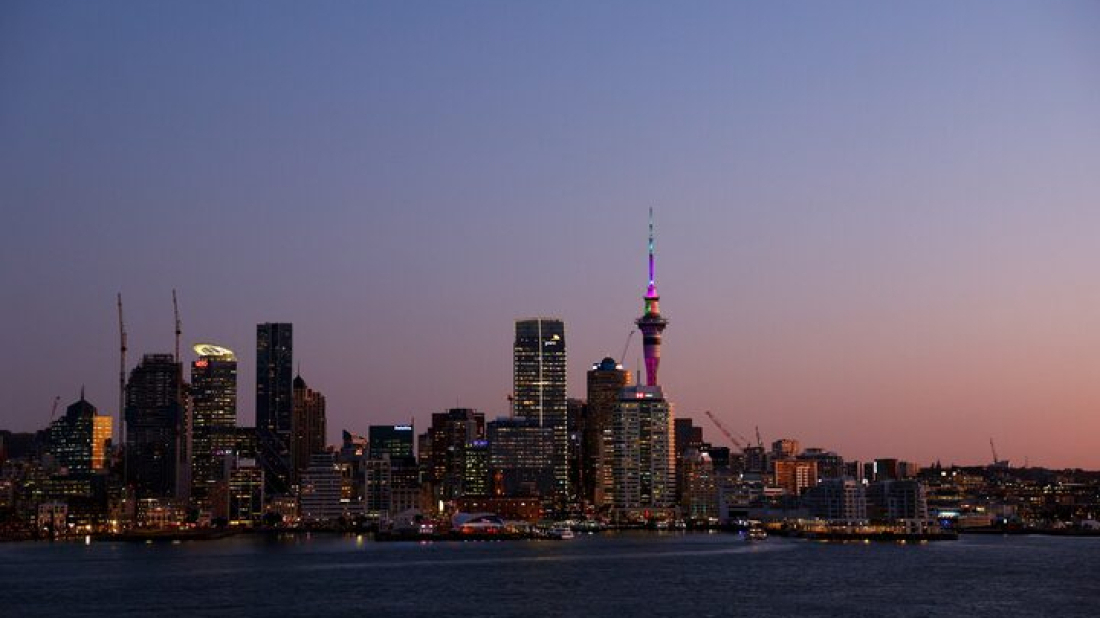Ukraine imposes new sanctions targeting Russian maritime and defence supply chains
Ukraine’s President Volodymyr Zelenskyy has approved new sanctions targeting Russian maritime operators, defence-linked companies and individuals co...

New Zealand's annual inflation accelerated in the third quarter, reaching 3.0%, which aligns with analysts' expectations and is at the upper end of the central bank's target range, according to official data released on Monday.
The consumer price index increased by 1.0% in the third quarter compared to the previous quarter, faster than the 0.5% rise in the second quarter but in line with a Reuters poll.
The Reserve Bank of New Zealand (RBNZ) aims for annual inflation to stay between 1% and 3% over the medium term. The RBNZ, which had predicted annual inflation would be 3% for this quarter in its August forecast, recently cut the cash rate by 50 basis points to 2.5%, citing concerns over economic weakness. In its latest review earlier this month, the bank acknowledged that inflation had ticked higher but indicated that, due to spare capacity in the economy, it expected inflation to return to 2% by mid-2026.
ANZ senior economist Miles Workman noted that while high-frequency data and inflation expectations will be key indicators in the lead-up to the November monetary policy statement, inflation does not pose any challenge to the central bank's August forecast. He added that underlying inflation is slowing largely as anticipated.
Annual non-tradable inflation stood at 3.5%, down from 3.7% in the second quarter. The New Zealand dollar remained largely unchanged at $0.5732.
Analysts pointed out that uncertainty surrounding U.S. tariffs and ongoing geopolitical tensions continue to impact inflation expectations and monetary policy decisions. Statistics New Zealand attributed the third-quarter inflation result to increases in electricity prices, rent, and local government taxes. "Annual electricity price rises are the highest since the late 1980s, when major reforms were carried out in the electricity market," said Nicola Growden, a spokesperson for Statistics New Zealand.
Quentin Griffiths, co-founder of online fashion retailer ASOS, has died in Pattaya, Thailand, after falling from the 17th floor of a condominium on 9 February, Thai police confirmed.
Cubans are increasingly turning to solar power to keep businesses operating and basic household appliances running during prolonged electricity cuts, as fuel shortages make diesel generators and other temporary solutions more difficult and costly to maintain.
Ukraine’s National Paralympic Committee has announced it will boycott the opening ceremony of the Milano Cortina 2026 Paralympics in Verona on 6 March, citing the International Paralympic Committee’s decision to allow some Russian and Belarusian athletes to compete under their national flags.
Eric Dane, the actor best known for his roles in 'Grey’s Anatomy' and 'Euphoria', died on Thursday, at the age of 53 after a battle with amyotrophic lateral sclerosis (ALS). His family confirmed his death after what they described as a “courageous battle” with ALS.
An Austrian climber has been convicted of gross negligent manslaughter after his girlfriend died from hypothermia while climbing Austria’s highest peak, the Grossglockner, in January 2025.
Millions of Colombian roses have arrived in the United States just in time for Valentine’s Day, keeping the country on track as the world’s second-largest flower exporter. Between 15 January and 9 February, Colombia shipped roughly 65,000 tons of fresh-cut blooms.
Russia’s car market is continuing to receive tens of thousands of foreign-brand vehicles via China despite sanctions imposed after Moscow’s full-scale invasion of Ukraine in 2022, a journalistic investigation has found.
Türkiye’s national energy company, TPAO, has struck a new cooperation deal with U.S. energy giant Chevron, signing a memorandum of understanding to explore joint oil and gas exploration and production opportunities, the Turkish Energy and Natural Resources Ministry announced on Thursday.
Wall Street ended sharply lower on Tuesday as investors worried about artificial intelligence (AI) creating more competition for software makers, keeping them on edge ahead of quarterly reports from Alphabet and Amazon later this week.
U.S. stock markets finished mixed on Wednesday (28 January) as investors reacted calmly after the Federal Reserve left interest rates unchanged, a decision that had been widely expected and largely priced in.
You can download the AnewZ application from Play Store and the App Store.

What is your opinion on this topic?
Leave the first comment